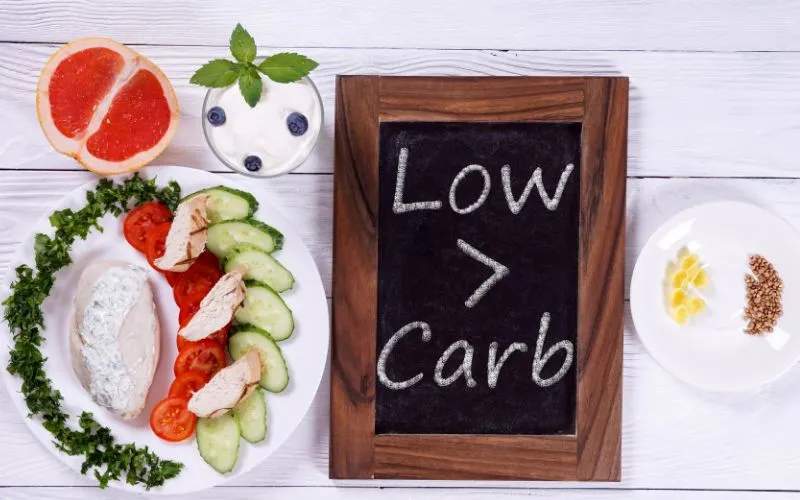You’ve probably heard of various low-carb diets like the keto diet, but have you come across the “slow-carb” diet? Unlike traditional low-carb approaches, the slow-carb diet focuses on the digestion of carbohydrates, aiming for a more sustained energy release and potentially better weight management. Here’s a closer look at what the slow-carb diet entails, how it works, and whether it might be the right choice for you.
Understanding Carbohydrates: The Basics
Carbohydrates, often simply called “carbs,” are one of the main nutrients and a primary energy source for your body. They’re found in various foods, from vegetables and fruits to grains and legumes. Carbs can be categorized into fast and slow, depending on how quickly they are digested and absorbed by the body.
What Are Slow Carbs?
Slow carbohydrates, or “slow carbs,” are found in whole, minimally processed foods such as vegetables, legumes, and whole grains. These foods are digested slowly, which means they gradually release glucose into the bloodstream, helping maintain steady energy levels and reduce hunger. This contrasts with fast carbohydrates, like those in sugary snacks and refined grains, leading to quick blood sugar spikes followed by crashes.
Detailed Rules Of The Slow-Carb Diet
The slow-carb diet follows a structured approach with five essential rules. These rules aim to simplify meal planning, control caloric intake, and maintain a balanced metabolic state while promoting weight loss.
Avoid White Carbohydrates
White carbohydrates, such as white bread, pasta, and rice, are heavily processed and lack essential nutrients and fiber. These white carbohydrate foods can lead to rapid blood sugar spikes and subsequent crashes. The slow-carb diet emphasizes avoiding these to maintain stable energy levels and improve overall health.
Repeat Meals
Sticking to a few staple meals helps simplify diet adherence and meal preparation. By consistently choosing from a limited list of compliant foods, meal planning becomes more straightforward, reducing the temptation to deviate from the diet and making it easier to manage portion sizes.
Don’t Drink Calories
The slow-carb diet prohibits calorie-rich beverages like soda, fruit juice, and alcohol, as they add unnecessary calories with little nutritional benefit. Instead, it encourages the consumption of water, unsweetened tea, and coffee to stay hydrated without adding extra calories.
Skip Fruit
Fruits are excluded from the slow-carb diet due to their natural sugar content, which can lead to blood sugar spikes and potentially hinder weight loss. The diet recommends obtaining essential vitamins and nutrients from low-sugar vegetables and legumes instead.
Enjoy A Cheat Day
One day a week is designated as a “cheat day,” where you can eat any foods you desire. This approach helps prevent metabolic slowdown and reduces the psychological stress of dieting by allowing for periodic indulgences, making the diet more sustainable in the long run.
What To Eat On The Slow-Carb Diet
The slow-carb diet emphasizes a limited range of foods. Here are some of the staples:
- Proteins: Egg whites, chicken, beef, pork, fish, and krill meat.
- Legumes: Lentils, black beans, and soybeans.
- Vegetables: Spinach, mixed vegetables, asparagus, and broccoli.
- Fats: Nuts, oils, and clarified butter.
The idea is to mix and match these foods to create satisfying meals that comply with the diet’s principles.
Benefits Of The Slow-Carb Diet
Advantages of a slow-carb diet include:
Simplified Meal Planning
The limited food choices and repetitive meals make meal planning straightforward and less time-consuming, which can be a major plus for busy individuals.
Potential For Rapid Weight Loss
One of the key benefits of the slow-carb diet is its potential for rapid weight loss. By prioritizing high-protein foods and minimizing high-carb items, the diet may help you shed body fat quickly. Protein’s satiating effect can also aid in preventing muscle loss during weight loss, making it a promising option for those seeking to manage their weight.
Metabolic Boost
The diet’s cheat day concept aims to prevent metabolic slowdown, a common issue with prolonged calorie restriction. This could help maintain energy levels and promote continued fat loss.
Reduced Cravings
Knowing that you can enjoy your favorite foods once a week might help you stick to the diet the rest of the time, potentially reducing the likelihood of binge eating.
Downsides Of The Slow-Carb Diet
A low-carbohydrate diet offers various benefits, but it also presents certain drawbacks alongside these advantages:
Nutrient Deficiency Risks
Excluding fruits and certain vegetables can lead to a lack of essential vitamins and minerals. Not consuming enough dietary fiber can damage overall health and may lead to constipation.
Potential For Disordered Eating
The concept of a cheat day can create an unhealthy relationship with food, promoting binge eating and a cycle of restriction and overindulgence that can be harmful both physically and mentally.
Lack Of Long-Term Sustainability
The diet’s restrictive nature makes it difficult to maintain over the long term. Many people find it challenging to adhere to a diet that excludes entire food groups and allows little variety.
Sample Of 3-Day Slow Carb Meal Plan
| Day | Breakfast | Lunch | Dinner | Snacks |
| 1 | Scrambled egg whites with spinach | Grilled chicken with lentils and mixed veggies | Krill stir-fry with broccoli | Almonds, black beans |
| 2 | Egg whites and mixed vegetables | Lentil salad with chicken breast | Baked fish with asparagus | Hummus, carrot sticks |
| 3 | Boiled eggs with sauerkraut | Black bean and beef chili | Soybean stir-fry with spinach | Mixed nuts, soybeans |
Conclusion
The slow-carb diet presents a unique approach to weight loss by focusing on the digestion rate of carbohydrates and incorporating a weekly cheat day to potentially prevent metabolic slowdown and curb cravings. While it has its benefits, such as simplified meal planning and the potential for rapid weight loss, it also comes with significant downsides, including nutrient deficiencies and the risk of fostering an unhealthy relationship with food.
Ultimately, the slow-carb diet might work well for short-term weight loss, but its restrictive nature may make it challenging to stick with in the long term. As with any diet, it’s important to consider whether it aligns with your lifestyle and health goals. A well constructed diet plan is generally recommended for sustainable weight management and overall health.
Frequently Asked Questions
Why Is It Named The Slow-Carb Diet?
The term “slow-carb diet” stems from its focus on replacing “fast” carbohydrates—found in refined and highly processed foods like white bread, pretzels, and crackers—with “slow” carbohydrates. These slow carbs found in whole foods take longer to digest, leading to a gradual release of energy and stabilizing blood sugar levels.
Is The Slow-Carb Diet Beneficial For Health?
While the Slow-Carb Diet can aid in weight loss and help regulate blood sugar levels, it also restricts several nutrient-rich food groups, which are essential for overall health. The diet’s exclusion of fruits and certain vegetables could lead to nutrient deficiencies, potentially impacting both physical and mental well-being. The restrictive nature of the diet may make it challenging to sustain long-term and could negatively affect your overall health.










